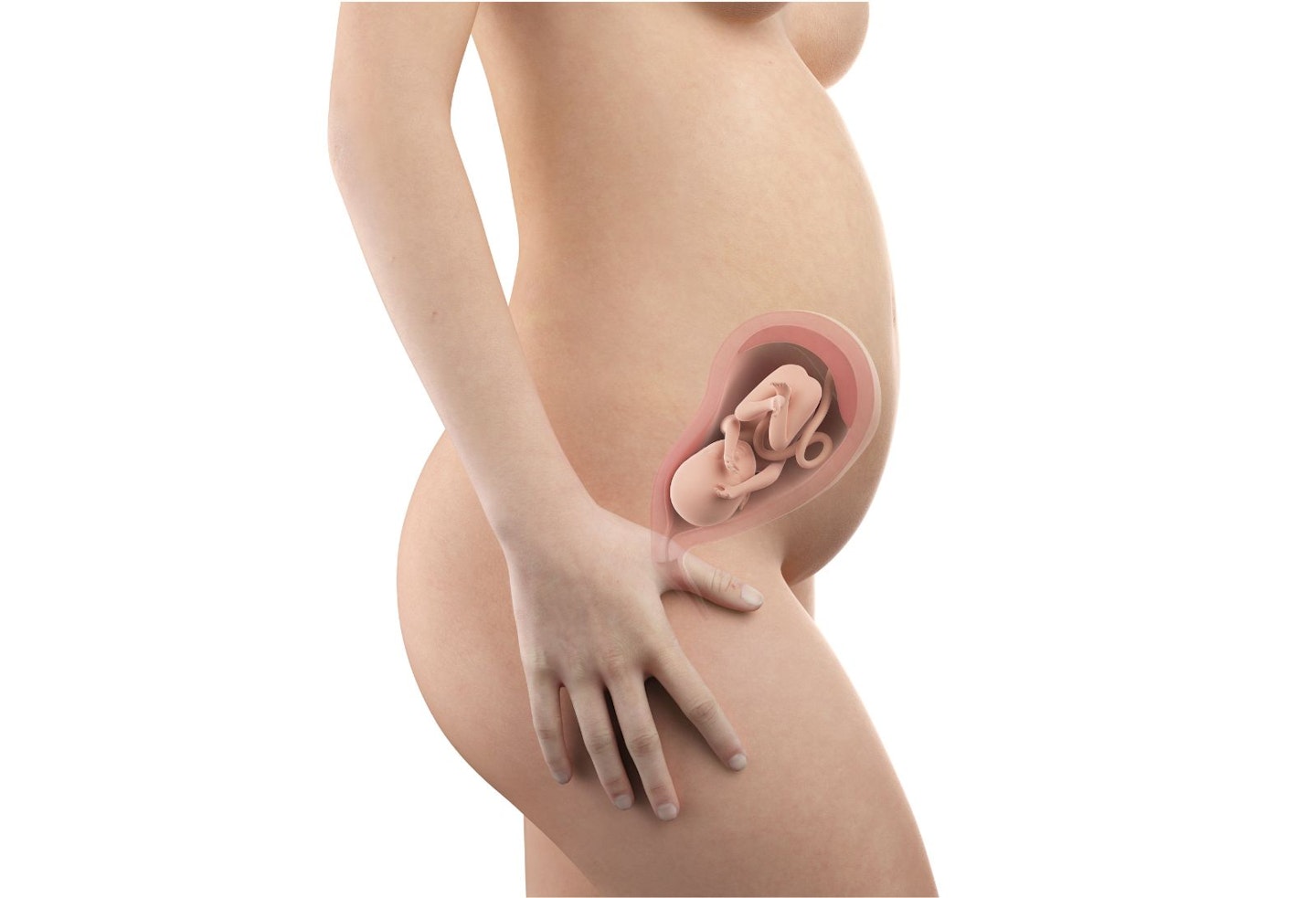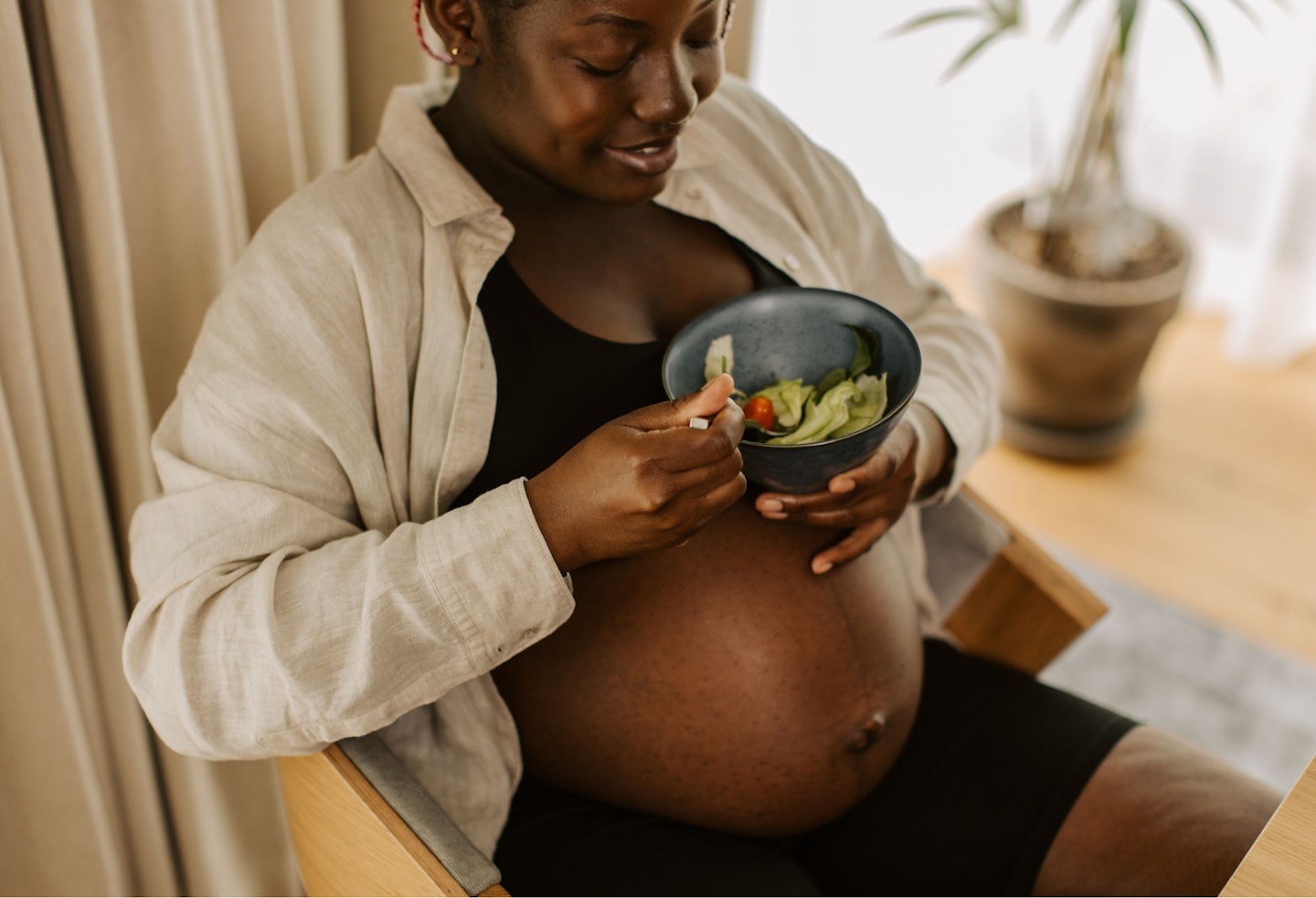
Medically Reviewed by: Lesley Bland BA (Hons), BSc (Hons) Midwifery Studies
You’re 25 weeks pregnant—can you believe it? You’re getting closer to meeting your little one, and while the idea of delivery might seem a bit overwhelming, it’s also incredibly exciting! Now that you’re deep into your second trimester, your baby is growing stronger and more active every day. At this stage, you may notice more changes in your body, and it's totally normal to experience a range of symptoms.
We’ll walk you through what to expect in the coming weeks. From your baby’s development to the common symptoms you might experience, we’ve got you covered with some helpful tips on how to manage any discomfort. We also consulted with Emiliana Hall, founder of The Mindful Birth Group and Lesley Bland, registered midwife and consultant midwife for My Expert Midwife,to share expert advice on staying healthy and comfortable as your pregnancy progresses.
We’ll discuss your growing bump, those exciting baby kicks, upcoming scans, and essential check-ups, plus provide reassurance about the changes happening in your body.
How big is my baby at 25 weeks?

Your baby is now about the size of an aubergine, or eggplant, measuring around 13.5 inches long and weighing about 1.5 pounds. This is a time of steady growth as your baby prepares for the final stretch of development.
How many months pregnant is 25 weeks
At 25 weeks pregnant, you’re officially six months into your pregnancy!

Baby development at 25 weeks pregnant
At 25 weeks pregnant, your baby is growing rapidly and hitting some important developmental milestones.
According to Emiliana Hall, founder of The Mindful Birth Group, "By 25 weeks, your baby's skin is becoming more opaque and they are gaining fat, which will help regulate their body temperature after birth."
Here are some key developments happening this week:
Baby's heart rate
At 25 weeks, the baby's heart rate is around 140 beats per minute, which is a normal and healthy rate. This is faster than the typical heart rate of a newborn after birth, which usually settles at around 120–160 beats per minute in the first months of life.
Eyelids opening
At 25 weeks, your baby’s eyelids will open for the first time. This is an important milestone as their eyes are developing, although they will still be closed for much of the time until later in pregnancy.
Brain development and senses
Your baby's brain is actively developing and regulating their sensory functions. By 25 weeks, the baby’s brain waves are becoming more established, and they may start responding to external stimuli like sound and light. This is a critical time for brain development.
"Your baby’s hearing is improving, and they might start responding to your voice or other familiar sounds. Playing soothing music or a relaxation audio and talking to your baby can be a great way to bond," Emiliana adds.
Lungs
While the baby’s lungs are still immature, they are developing rapidly at 25 weeks. Emiliana explains, "The lungs are continuing to mature, producing surfactant, a substance that will help them breathe once they are born."
If born prematurely at this stage, a baby has about an 80% chance of survival, particularly with specialised neonatal care in a NICU. However, the baby would still require assistance with breathing as their lungs are not fully developed. This aligns with the statistics for survival rates in preterm births between 24 and 26 weeks.
Reflexes
Sucking and swallowing reflexes, which are important for feeding after birth, are starting to develop at 25 weeks. These reflexes are critical for survival once the baby is born and are actively being refined during this stage.
Hair, fingers, and toes
Fine hair (like lanugo) begins to grow on the baby’s head around this time, and their fingers and toes are fully formed, with fingerprints starting to develop. These features will continue to develop in the coming weeks.
Eyes
The baby’s eyes are fully formed at this stage, and the iris is starting to gain pigmentation, which will determine the baby's eye colour. While their eyelids will open, they may still be closed most of the time in the weeks to come.
Movement
By 25 weeks, you should be feeling more pronounced movements as your baby’s muscles continue to strengthen. Emiliana says, "You might notice your baby’s movements becoming more pronounced. They are getting stronger and might start developing a more regular pattern of movement." These kicks, rolls, and other movements are becoming stronger and more coordinated.

Your body at 25 weeks pregnant
Growing baby bump
Your uterus is expanding as your baby continues to grow, causing your belly to get more prominent. This can make it harder to move around, and you might start noticing that your posture changes.
Increased blood volume
As your body increases blood flow to nourish your baby, you may notice some changes like swelling or tingling in your hands and feet, and even some nasal congestion.
Breast changes
Your breasts are continuing to grow and may feel more sensitive as they prepare for breastfeeding. You may also notice that your areolas are getting darker.
Hormonal changes
Your pregnancy hormones continue to cause physical changes, including potential skin changes like the "pregnancy glow" or acne, as well as mood swings.
Lung and digestive system changes
Your growing baby is pressing against your diaphragm, which may cause difficulty with breathing and digestion. This can lead to discomfort, such as heartburn, feeling bloated, or getting out of breath when going up stairs for example.

25 weeks pregnant symptoms
You might also start noticing new symptoms. While many of these are completely normal, it's helpful to know what to expect so you can manage them with confidence.
Back pain
As your belly grows, back pain can become more frequent due to added weight and changes in posture. Supportive shoes, good posture, and light exercises like prenatal yoga can help.
Heartburn
Your growing uterus is pressing on your digestive tract, which can cause stomach acid to rise, resulting in heartburn. Avoid spicy or greasy foods and check with your doctor before using antacids.
Bloating and gas
Pregnancy hormones are slowing down your digestion, which can cause bloating and gas. Eating smaller meals, drinking water, and staying active can help ease these symptoms.
Swelling (oedema)
The extra blood and fluid in your body can lead to swelling, particularly in your feet, ankles, and hands. Elevate your feet when resting and avoid standing for long periods.
Insomnia
As your body grows and you may start to feel more uncomfortable, sleep can become difficult. Make your sleep environment as relaxing as possible—avoid screen time and try using extra pillows for support.
Restless Legs (RLS)
Around 15% of pregnant people experience RLS, which causes tingling and an irresistible urge to move your legs. Stretching, warm baths, and iron-rich foods may help.
Constipation
Slower digestion is a common symptom, which may lead to constipation. Make sure to stay hydrated, eat plenty of fiber, and get regular light exercise.
Braxton hicks contractions
You may start feeling these "practice contractions" at 25 weeks. They’re usually mild and go away when you change positions, but if they become painful or regular, contact your healthcare provider.
Frequent urination
As your baby grows, they press against your bladder, making it more difficult to hold in urine. Even though you might need to pee more often, it’s important to stay hydrated.
Tingling hands (carpal tunnel)
The increased blood volume in your body can cause swelling that puts pressure on your wrists, potentially leading to carpal tunnel symptoms. Consider wrist braces or acupuncture for relief.

Looking after yourself (and your baby) at 25 weeks pregnant
Sleep
Avoid sleeping on your back, as it’s been linked to a higher risk of stillbirth. Opt for sleeping on your side, and if you wake up on your back, gently shift to your side.
Healthy diet
Weight gain is expected at this stage, but focus on eating a balanced diet rich in vitamins, iron, calcium, and folic acid. Eating smaller, more frequent meals can help manage heartburn and keep energy levels steady. Avoid processed or unhealthy foods, and make sure you're getting the nutrients you and your baby need.
Lesley Bland, registered midwife and consultant midwife for My Expert Midwife, advises to “Continue to take your prenatal dietary supplements which will ensure that both you and your baby are getting all of the pregnancy-specific nutrients that are advised for your health and wellbeing.”
Oral care
If your gums are bleeding, avoid sugary or acidic foods and drinks. Make sure you're brushing twice a day and flossing regularly. If you're concerned, visit your dentist.

Other things to consider at 25 weeks pregnant
As you get closer to your due date, Emiliana suggests, “begin discussing your birth plan with your partner and healthcare provider. Set up your home for the baby, and make sure you have the necessary supplies. The more prepared you are, the smoother the transition will be when your baby arrives.”
Write your birth plan: Now is a great time to think about where you'd like to give birth. Research your options, including a midwife led unit, labour ward, or home birth, and discuss your preferences with your healthcare provider.
Stay active: Engage in gentle exercises like walking, swimming, or pregnancy yoga to relieve discomfort and keep you in good shape for labour. Always check with your healthcare provider before starting any new activity.
Hydration: Aim for 8-10 glasses of water daily to stay hydrated, which helps reduce swelling and supports amniotic fluid levels.
Mental health: Take time for self-care, relaxation, and connecting with loved ones. If you're feeling overwhelmed, seek support from family, friends, or a professional.
Antenatal classes: Consider signing up for antenatal classes to prepare for labour and newborn care. PregnaHub® platform offers e-learning modules, pregnancy yoga, and relaxation sessions led by experts.
When to call the midwife
While many symptoms are a normal part of pregnancy, there are certain signs you should not ignore. Contact your midwife or healthcare provider if you experience:
-
Severe abdominal pain
-
Heavy bleeding
-
Persistent or severe headaches
-
Sudden swelling in your hands, face, or feet
-
Vision changes
-
Reduced foetal movements
At 25 weeks, you’re well on your way to meeting your baby. Embrace this time, take care of yourself, and reach out for support when you need it. Your journey is unique, and each week brings you closer to holding your little one in your arms.
Meet the experts
Lesley Bland has also provided her expert advice and medically reviewed this article. Lesley is a Registered Midwife and Consultant Midwife for My Expert Midwife. She began her Midwifery career working in large teaching hospitals rotating through all clinical areas with particular emphasis on antenatal and intrapartum care. Lesley qualified as a mentor of students and developed a passion for education specialising as a Clinical Educator teaching the maternity multidisciplinary team.
Emiliana Hall is the founder of The Mindful Birth Group which provides award-winning Mindful Natal courses and the PregnaHub online platform, as well as an accredited Teacher Training program and Midwife CPD courses. She is also an experienced Birth and Postnatal Doula. Emiliana's vision is to make vital antenatal and postnatal education and ongoing support accessible to everyone in the UK.
About the author
Anne Lora Scagliusi is a Senior Digital Writer at Mother&Baby. She is a Scotland-based journalist with over a decade of international experience specialising in women’s health, maternal mental health, and well-being.
